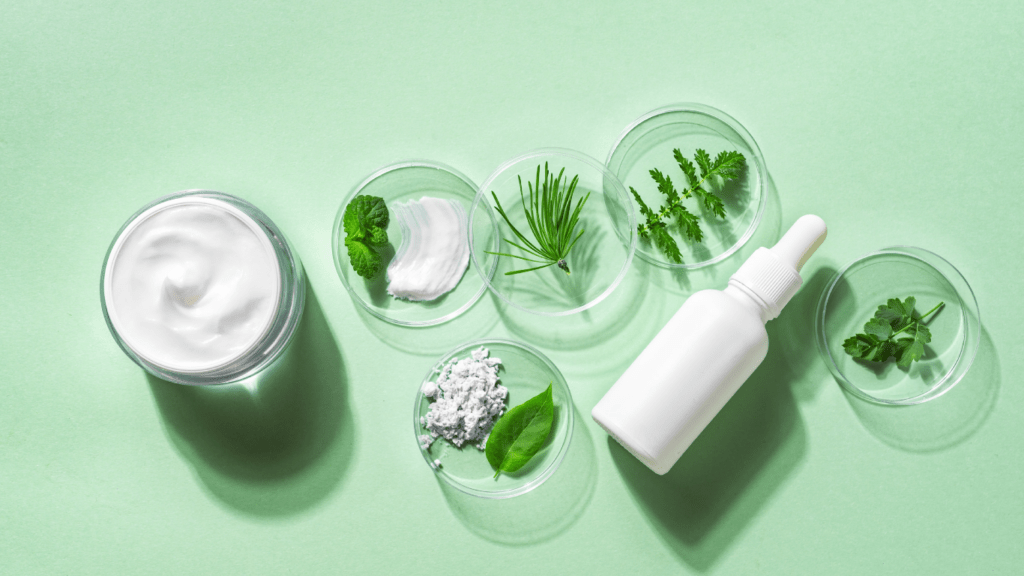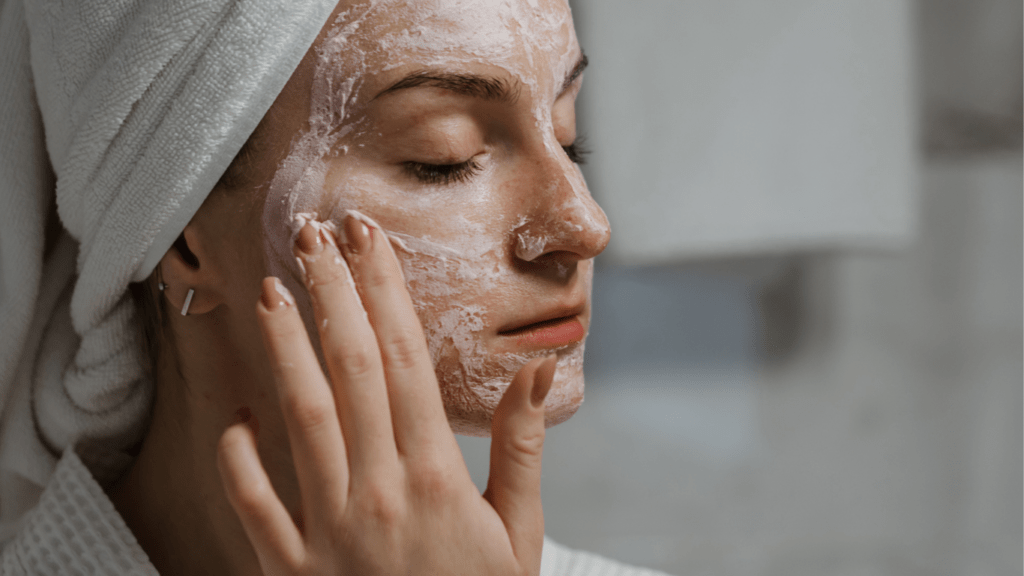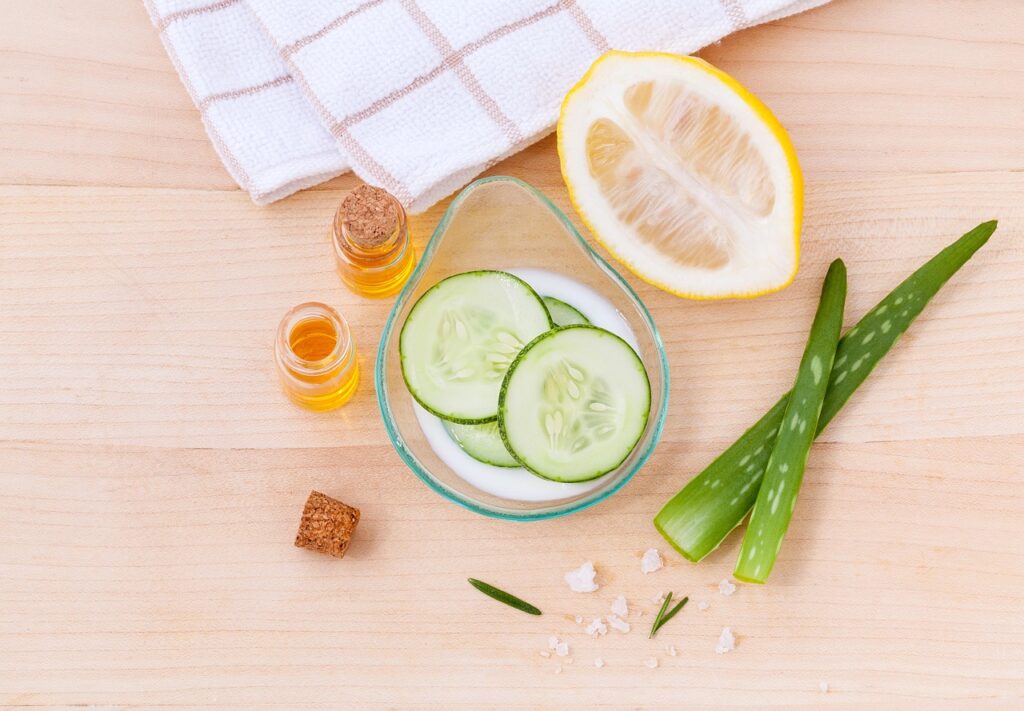Importance Of Natural Skincare
Natural skincare is essential for maintaining healthy, glowing skin. By using natural ingredients, I avoid harmful chemicals often found in conventional skincare products. These chemicals, such as parabens and sulfates, can irritate my skin and disrupt its natural balance. Natural ingredients, like aloe vera and coconut oil, nourish my skin and provide much-needed hydration without adverse effects.
Environmental benefits also come with natural skincare. Many conventional products contain microplastics and toxic substances that harm the environment. By choosing natural alternatives, I reduce my ecological footprint and support sustainability. Ingredients like shea butter and jojoba oil are biodegradable and sourced sustainably, making them kinder to the planet.
Using natural skincare fosters a deeper connection with my skin’s needs. Instead of masking issues with synthetic substances, I address the root causes of skin problems. Herbs like chamomile and lavender have soothing properties that assist in calming inflammation, while ingredients like honey and turmeric have antibacterial and anti-inflammatory effects, promoting clearer skin.
Natural skincare methods often incorporate proven, traditional remedies passed down through generations. Knowledge of these practices enables me to harness the power of nature for optimal skin health. For example, rose water is known for its toning properties, and green tea extract is rich in antioxidants that combat free radicals and premature aging.
Embracing natural skincare is a holistic approach that not only enhances my skin’s appearance but also contributes positively to my overall well-being and the environment.
Morning Skincare Routine

To start the day right, I follow a morning skincare routine that rejuvenates and prepares my skin for the day ahead.
Cleansing
Cleansing is crucial to remove any impurities that accumulate overnight. I use a gentle cleanser with natural ingredients like chamomile extract and aloe vera to avoid stripping my skin of its natural oils. Cleansers with these ingredients provide a soothing and hydrating effect, making them ideal for morning routines.
Toning
Next, toning helps balance my skin’s pH levels and tightens pores. I prefer natural toners such as rose water or witch hazel. These toners not only refresh but also prep my skin to absorb the subsequent skincare products more effectively. They come from natural sources, reducing the risk of irritation and offering gentle care.
Moisturizing
Moisturizing is essential to lock in hydration and keep my skin smooth and supple throughout the day. I gravitate towards moisturizers that feature ingredients like jojoba oil and shea butter. These natural moisturizers are lightweight yet deeply nourishing, providing long-lasting hydration without clogging pores.
Evening Skincare Routine
Starting an evening skincare routine helps repair and renew the skin overnight. Focus on natural ingredients to enhance and maintain skin health.
Removing Makeup
Removing makeup is essential to avoid clogged pores and irritation. I use natural oil-based cleansers, like jojoba or coconut oil. These oils effectively dissolve makeup without stripping the skin’s natural moisture. Micellar water with minimal ingredients is another option, suitable for sensitive skin. Use a soft cotton pad or a reusable cloth to gently wipe away makeup, avoiding tugging on the skin.
Night Creams And Serums
Night creams and serums provide targeted treatment while the skin repairs itself during sleep. I opt for night creams containing ingredients like hyaluronic acid and vitamin E for intense hydration and antioxidant protection. Serums with natural extracts, such as green tea and rosehip oil, help reduce fine lines and promote collagen production. Applying these products on a slightly damp face increases absorption, maximizing their benefits.
Essential Natural Ingredients
Incorporating natural ingredients into your skincare routine can provide numerous benefits. Here are some essential natural ingredients to consider for healthy, glowing skin.
Aloe Vera
Aloe vera offers soothing properties that help calm irritated skin. With its high water content, it provides excellent hydration and aids in healing minor cuts and sunburns. Aloe vera gel can be used directly from the plant or found in various skincare products. For optimal results, apply a thin layer to your face after cleansing and let it absorb fully.
Coconut Oil
Coconut oil is a versatile ingredient known for its moisturizing effects. Rich in fatty acids, it helps maintain the skin’s barrier function, preventing moisture loss. It’s particularly beneficial for dry skin types. Use coconut oil as a nighttime moisturizer or to remove makeup. Warm a small amount between your hands and gently massage it into your skin.
Honey
Honey has natural antibacterial and anti-inflammatory properties, making it ideal for acne-prone skin. It helps keep the skin hydrated and can aid in healing blemishes. Raw honey works best for skincare purposes. To use, apply a thin layer to your face, leave it on for about 10 minutes, then rinse with warm water. Honey can also be mixed with other ingredients, like yogurt or oatmeal, for a nourishing face mask.
DIY Natural Skincare Recipes
Creating your own skincare products guarantees natural ingredients for healthy, glowing skin. Here are some easy-to-make recipes:
Face Masks
Natural face masks can address various skin issues efficiently. An effective Avocado Honey Mask combines avocado (rich in healthy fats) and honey (known for its antibacterial properties). Mash half an avocado, then add one tablespoon of honey, and apply it to your face for 15-20 minutes. Rinse with warm water to reveal hydrated skin.
For problematic skin, try a Turmeric Yogurt Mask. Mix one teaspoon of turmeric powder with two tablespoons of plain yogurt. Apply this mask for 10-15 minutes and rinse. Turmeric helps inflammation while yogurt provides probiotics for skin health.
Scrubs
Natural scrubs exfoliate without harsh chemicals. A popular option is a Coffee Sugar Scrub.
- Combine half a cup of coffee grounds with a quarter cup of coconut oil and a quarter cup of brown sugar.
- Gently massage this mixture onto your skin in circular motions before rinsing with warm water.
- The coffee grounds exfoliate, while coconut oil moisturizes.
For sensitive skin, opt for an Oatmeal Honey Scrub. Mix one tablespoon of finely ground oatmeal with one tablespoon of honey and a dash of warm water to form a paste. Apply in circular motions, then rinse. Oatmeal soothes the skin, and honey provides hydration.
Lifestyle Tips For Glowing Skin
Incorporating natural skincare routines is vital, but adopting certain lifestyle habits can enhance the skin’s health and glow.
Hydration
Staying hydrated is essential for maintaining healthy, glowing skin. Drinking at least 8 glasses of water daily can keep the skin cells hydrated, improving elasticity and reducing the appearance of wrinkles. Water-rich foods like cucumbers, oranges, and watermelon also contribute to hydration.
Balanced Diet
A balanced diet packed with vitamins and nutrients benefits the skin.
- Consuming a variety of fruits and vegetables provides antioxidants, which protect against free radical damage.
- Omega-3 fatty acids, found in fish and flaxseeds, keep the skin supple and hydrated.
- Avoiding excessive sugar and processed foods reduces inflammation and prevents breakouts.
Adequate Sleep
Getting adequate sleep allows the body to repair and regenerate skin cells. Aim for 7-9 hours of sleep each night to support these processes. Poor sleep can lead to dull, tired-looking skin and exacerbate conditions like acne and eczema. Establishing a consistent sleep schedule and creating a calming bedtime routine can improve sleep quality and, consequently, skin health.



 Jewelldane Fultz is a skincare specialist and beauty enthusiast who has spent years studying the science behind healthy skin. Known for her expertise in formulating effective skincare routines, Jewelldane emphasizes simplicity and consistency to help people achieve long-lasting results. Her in-depth knowledge of skincare ingredients makes her a trusted source for anyone looking to enhance their natural glow.
Jewelldane Fultz is a skincare specialist and beauty enthusiast who has spent years studying the science behind healthy skin. Known for her expertise in formulating effective skincare routines, Jewelldane emphasizes simplicity and consistency to help people achieve long-lasting results. Her in-depth knowledge of skincare ingredients makes her a trusted source for anyone looking to enhance their natural glow.
